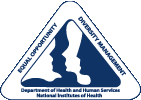The Roles and Responsibilities of an EEO Counselor
Where an aggrieved person seeks EEO counseling, the Counselor must
ensure that the complainant understands his/her rights and responsibilities
in the EEO process, including the option to elect ADR. The EEO Counselor
must perform several tasks in all cases, regardless of whether the
individual ultimately elects the ADR option, including:
- Advise the aggrieved person about the EEO complaint
process under 29 C.F.R. Part 1614.
- Determine the claim(s) and basis(es) raised by the
potential complaint.
- Conduct an inquiry during the initial interview
with the aggrieved person for the purposes of determining jurisdictional
questions. This includes determining whether there may be issues
relating to the timeliness of the individual's EEO Counselor contact
and obtaining information relating to this issue. It also includes
obtaining enough information concerning the claim(s) and basis(es)
so as to enable the agency to properly identify the legal claim raised
if the individual files a complaint at the conclusion of the EEO
counseling process.
- Seek a resolution of the dispute at the lowest possible
level.
- Advise the aggrieved person of his/her right to
file a formal discrimination complaint if attempts to resolve the
dispute through EEO counseling or ADR fail to resolve the dispute.
- Prepare a report sufficient to document that the
EEO Counselor undertook the required counseling actions and to resolve
any jurisdictional questions that arise.
|





